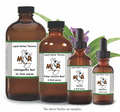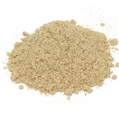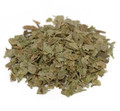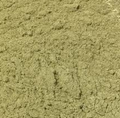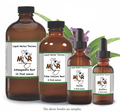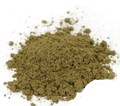 Loading... Please wait...
Loading... Please wait...- Home
- Bulk Herbs
- Herbs (B)
- Bilberry Leaf Powder
- Home
- Herbs - Organically Grown & Wild Crafted USA
- A-B
- Bilberry Leaf Powder
Product Description
Bilberry Leaf Powdered
Organically Grown - USA
Also Known As - Vaccinium myrtillus, European blueberry, Airelle, Bilberry Fruit, Bilberry Leaf, Black Whortles, Bleaberry, Blueberry, Burren Myrtle, Dwarf Bilberry, Dyeberry, Huckleberry, Hurtleberry, Myrtilli Fructus, Trackleberry, Whortleberry, Wineberry.
Overview - Bilberry is a perennial shrub native to Northern Europe, Northern America, and Canada. The plant produces a berry similar to the American Blueberry (Vaccinium corymbosum), but the species myrtillus is more densely concentrated in the antioxidant pigments, and is a smaller fruit. There are other differences; bilberries have dark blue, strongly fragrant flesh, while American blueberries have white, mildly fragrant flesh; the bilberries grow as single fruit on low bushes, usually wild in woods of the Northern Hemisphere, but American blueberries grow in a large bush with several fruit at once; bilberries are generally wild plants while American blueberries can be cultivated. Both species have been used as both food and medicine traditionally throughout history.
- Used to make wine.
- Elizabethan apothecaries made a syrup of the berries with honey, called rob, as a remedy for diarrhea.
Parts Used - Leaf and fruit.
Medicinal Uses - Since bilberries are more fragrant, and have more concentrated flavor and vitamins (like all more natural wild fruit varieties), they are especially well suited for making syrups and bilberry wine. Bilberry contains a group of antioxidants called anthocyanosides. Over 15 different anthocyanosides have been identified in Bilberry. The research on these constituents has focused on their potential ability to protect tissue integrity within the eyes from normal age-related oxidative stress and to promote healthy visual acuity. They are also well known to promote the health of capillaries and collagen structures. The use of this food to help support healthy circulation through the nutrient support they provide to the vascular system, veins and arteries is also well noted in the literature.
Preparations - You can eat the dried fruit whole or use in teas. Can also be used in liqueurs, wines, and desserts.
- Infusion: use 2-3 tsp. leaves with 1 cup water. Take 1 cup a day.
- Decoction: use 1 tsp. dried berries with 1 cup water; let stand for 8 hours.
- Extract: mix 15-40 drops in water or juice, and drink 3 times daily.
- Tincture: take 15-40 drops in water, 3 or more times a day as needed.
Precautions - Bilberry fruit is known to be safe for pregnant women. Maximum dosages of bilberry leaf have not been established for nursing mothers, young children, or people with severe liver or kidney disease, but there are no reports of toxicity. A bilberry leaf may lower blood sugars in diabetics. The leaf is not recommended for long term use.
Disclaimer - These products are dietary supplements and are not intended to diagnose, treat cure or prevent any disease. Reviews are not intended as a substitute for appropriate medical care or the advice of a physician or another medical professional. Actual results may vary among users. Mountain Maus Remedies LLC makes no warranty or representation, expressed or implied, as to the accuracy or validity of the information contributed by outside product review submissions, and assumes no responsibility or liability regarding the use of such information. The information and statements regarding the dietary supplements have not been evaluated by the Food and Drug Administration. If you have a medical condition or disease, please talk to your health care provider. If you are currently taking a prescription medication, you should work with your health care provider before discontinuing any drug or altering any drug regimen, including augmenting your regimen with dietary supplements. Do not attempt to self-diagnose any disease or ailment based on the reviews and do not use the information contained herein for diagnosing or treating a health problem or disease. Proper medical care is critical to good health. If you have a health concern or suspect you have an undiagnosed sign or symptom, please consult a physician or health care practitioner.







